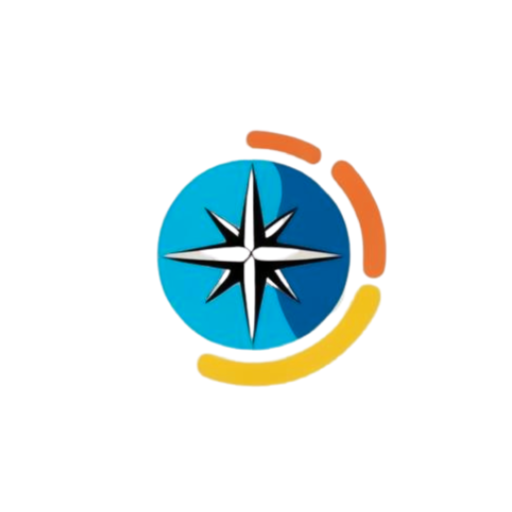Historical Timeline
1914 (January 1, Wednesday): The British merge the northern and southern protectorates to form the Colony and Protectorate of Nigeria
1960 (October 1, Thursday): Nigeria gains independence from Britain
1963 (October 1, Monday): Nigeria becomes a republic with Nnamdi Azikiwe as its first President
1967–1970 (July 6, Thursday): Biafra War (Nigerian Civil War) begins between Nigeria and the secessionist region of Biafra
1973 (December 20, Thursday): Oil Crisis: The oil embargo leads to economic turmoil, despite Nigeria being a key oil exporter
1983 (December 31, Saturday): Military coup led by General Muhammadu Buhari, ousts the civilian government
1993 (June 12, Saturday): June 12 Election: The annulment of the presidential election causes political unrest
1999 (May 29, Saturday): Nigeria returns to civilian rule with the election of Olusegun Obasanjo as President
2000 (October 22, Sunday): Kano Riots: Religious riots between Christians and Muslims in northern Nigeria
2010 (January 12, Tuesday): Boko Haram Insurgency: Attacks by the militant group Boko Haram begin in northeastern Nigeria
2011 (April 9, Saturday): Nigerian Presidential Election: Goodluck Jonathan wins the election
2014 (April 14, Monday): Chibok Kidnapping: Boko Haram kidnaps 276 schoolgirls from Chibok, sparking global outrage
2018 (October 30, Tuesday): Floods: Heavy rains cause widespread flooding in the northeast
2020 (October 20, Tuesday): End SARS protests: Nationwide protests against police brutality culminate in violent clashes with the government
2022 (August 1, Monday): Flooding in Lagos: Record rainfall leads to devastating flooding in the city
2023 (January 22, Sunday): Kaduna Train Attack: Armed militants target a passenger train, killing dozens of civilians
2023 (November 15, Wednesday): Oil Spill in Niger Delta: Environmental damage from a pipeline leak in the oil-rich region
General Information
Continent: Africa
Location: West Africa, bordered by Benin to the west, Chad and Cameroon to the east, Niger to the north, and the Atlantic Ocean to the south
Capital: Abuja
Language: English (official), Hausa, Yoruba, Igbo, and over 500 other languages
Currency: Nigerian Naira (NGN)
Population: ~223 million (last updated: April 2025)
Time Zone: West Africa Time (WAT, UTC+1)
Topography
Borders: Benin (west), Chad (east), Cameroon (east), Niger (north)
Landscape: Coastal plains, savannas, tropical rainforests, plateaus, mountains
Major Rivers: Niger River, Benue River, Cross River, Ogun River
Major Mountains: Jos Plateau, the Mambilla Plateau, the Shebshi Mountains
Deserts: Part of the Sahara Desert in the north
Lakes: Lake Chad (shared with Chad, Cameroon, and Niger)
Volcanoes: No active volcanoes
Highest Point: Chappal Waddi (2,419 m / 7,936 ft)
Lowest Point: Atlantic Ocean (sea level)
Climate: Tropical climate in the south, arid in the north (Sahel), with a rainy season from April to October and dry season from November to March
Geological Features: Plateaus, river valleys, tropical forests, and vast arid regions
Demography
Ethnic Groups: Hausa, Yoruba, Igbo, Fulani, Kanuri, Ijaw, and many others
Religion: Islam (approx. 50%), Christianity (approx. 40%), Indigenous religions (approx. 10%)
Urban Population: ~50% (last updated: 2023)
Aging Population: ~4% aged 65+ (last updated: 2024)
Culture
Famous For: Diverse cultural heritage, music (Afrobeats), Nollywood (film industry), rich traditions in art and dance
Cuisine: Jollof rice, pounded yam, suya, egusi soup, akara
Arts: Traditional music, dance, and arts (Yoruba, Igbo, Hausa), contemporary Nigerian art, literature (Chinua Achebe, Wole Soyinka)
Sports: Football (soccer), basketball, athletics, wrestling
Economy
Economy Type: Mixed, emerging market
GDP: Approx. $514 billion USD (last updated: 2024)
Major Industries: Oil and gas, agriculture, telecommunications, manufacturing, services
Key Exports: Crude oil, petroleum products, cocoa, rubber, agricultural products
Unemployment Rate: ~33% (last updated: 2024)
Economic Regions: Oil-rich south, agricultural north, and developing tech sector in cities like Lagos and Abuja
Government
Government Type: Federal presidential republic
Head of State: President Bola Tinubu (as of April 2025)
Head of Government: President Bola Tinubu (as of April 2025)
Legislature: Bicameral National Assembly (Senate and House of Representatives)
Constitution: Constitution of Nigeria, in effect since 1999
Travel Attractions
Abuja: National Mosque, Aso Rock, Nigerian National Christian Centre
Lagos: Nike Art Gallery, Lekki Conservation Centre, beaches, nightlife
Zuma Rock: Natural monolith near Abuja
Osun-Osogbo Sacred Grove: UNESCO World Heritage site, cultural and spiritual significance
Olumo Rock: Ancient rock formation, cultural landmark in Abeokuta
Calabar: National Museum, beaches, and wildlife reserves
